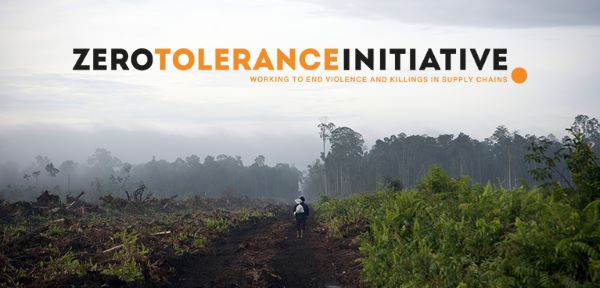First published on 12/05/2019, and last updated on 01/28/2020
By Hannah Storey, Helen Tugendhat, Francesco Martone and Claire Bracegirdle, from Forest Peoples Programme, Member of the ICCA Consortium.
In November 2019 alongside the 8th UN Forum on Business and Human Rights in Geneva, representatives from indigenous peoples, afro-descendant and peasant communities from 16 countries issued an urgent call for action – the Geneva Declaration. They are demanding governments and companies end the violence, killing and deliberate criminalisation of people defending their rights, their lands and their communities.
“We wish to live free of violence and demand the respect for our lives and our rights! The government should not impose their visions of development on us.” said Indianara Ramires Machado, from Brazil’s Guarani-Kaiowá indigenous peoples.
Written by those who have seen first-hand what happens when destructive business activities are conducted with impunity at the expanding frontier of agricultural and extractive industries, the Declaration articulates the extreme challenges that they and their communities, families and peoples face. It offers practical recommendations for states, businesses, investors and others to ensure their rights are respected and protected.
Indigenous peoples and community leaders take extreme risks to defend their territories, communities and the environment. A recent investigation by Global Witness revealed that three defenders are killed every week, a disproportionate amount of them indigenous. They are most often attacked while resisting abuses connected to agribusiness and mining. They are also routinely criminalized or branded as terrorists.
Forest Peoples Programme’s Director James Whitehead said “Despite efforts to date, violence and killing is still inextricably linked to global supply chains – in industries such as palm oil, soy and gold. Communities are facing threats, intimidation and even death as they try to protect their lands from unscrupulous business interests. The Zero Tolerance Declaration represents a collective voice of defenders from across the world. They’re saying that it’s time for governments, businesses and investors to step up and adopt a zero tolerance approach to violence and killings.”
The Declaration issues a challenge for governments, multi-lateral agencies, companies and investors to act in practical ways to stem the violence. The challenge now is to translate this framework into practical action. The UN Special Rapporteur on Human Rights Defenders, Michel Forst, spent two days speaking with and listening to the human rights defenders who finalised the Declaration. He said:
“I have worked the past 20 years on human rights defenders and so many have come on board making countless reports and recommendations. By now we know the situation, and we keep repeating recommendations. It is time to act!”
To find out more or to join the coalition, please visit www.zerotoleranceinitiative.org
This work has been supported by, among others, Forest Peoples Programme, International Work Group for Indigenous Affairs (IWGIA), the Asia Indigenous Peoples Pact (AIPP) and financially supported by Norway’s International Climate and Forest Initiative.
Featured image: © Natalie Behring.
